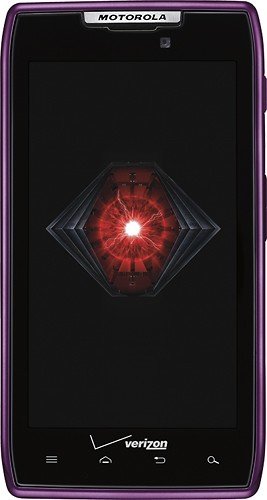The various encryption types
The three major encryption types are DES, AES, and RSA. While there are many kinds of encryption - more than can easily be explained here - we will take a look at these three significant types of encryption that consumers use every day. Most of the others are variations on older types, and some are no longer supported or recommended. Tech is evolving every day and even those considered to be modern will be replaced by newer versions at some point.
Just as security tech is taking steps to increase the safety of your information,
hackers are finding ways around them. It’s an arms race with your data as the spoils of war. Let’s dive in to popular encryption methods, the history of encryption, and where it’s going next.
DES encryption
Accepted as a standard of encryption in the 1970s, DES encryption is no longer considered to be safe on its own. It encrypts just 56-bits of data at a time and it was found to be easily hacked not long after its introduction. It has, however, served as the standard upon which future, more-secure encryption tools were based.
3DES
A more modern 3DES is a version of block cipher used today. Triple Data Encryption Standard (3DES) works as its name implies. Instead of using a single 56-bit key, it uses three separate 56-bit keys for triple protection.
The drawback to 3DES is that it takes longer to encrypt data. Also, the shorter block lengths are encrypted three times, but they can still be hacked. Banks and businesses still rely on it at this point in time, but newer forms may soon phase out this version.
When should use you use DES encryption?
You probably won’t use DES or even 3DES on your own today. Banking institutions and other businesses may use 3DES internally or for their private transmissions. The industry standard has moved away from it, however, and it’s no longer being incorporated into the newest tech products.
AES encryption
One of the most secure encryption types, Advanced Encryption Standard (AES) is used by governments and security organizations as well as everyday businesses for classified communications. AES uses “symmetric” key encryption. Someone on the receiving end of the data will need a key to decode it.
AES differs from other encryption types in that it encrypts data in a single block, instead of as individual bits of data. The block sizes determine the name for each kind of AES encrypted data:
- AES-128 encrypts blocks of a 128-bit size
- AES-192 encrypts blocks of a 192-bit size
- AES-256 encrypts blocks of a 256-bit size
In addition to having different block sizes, each encryption method has a different number of rounds. These rounds are the processes of changing a plaintext piece of data into encrypted data or ciphered text. AES-128, for example, uses 10 rounds, and AES-256 uses 14 rounds.
When should you use AES encryption?
Most of the data tools available on the market today use AES encryption. Even those that allow you to use other methods with their programs recommend the AES standard. It works in so many applications, and it’s still the most widely-accepted and secure encryption method for the price. In fact, you’re probably using it without even knowing it.
RSA Encryption
Another popular encryption standard is “Rivest-Shamir-Adleman” or RSA. It is widely used for data sent online and relies on a public key to encrypt the data. Those on the receiving end of the data will have their own private key to decode the messages. It’s proven to be a secure way to send information between people who may not know each other and want to communicate without compromising their personal or sensitive data.
When should you use RSA encryption?
You’ll need to know a little bit about using RSA to make it part of your routine, but once established, it has many uses. Some people use it to verify a digital signature and ensure the person they are communicating with is really who they say they are. It takes a long time to encrypt data this way, however, and isn’t practical for
large or numerous files.
Additional encryption types
There are other encryption services and tools available, including the fishes (Twofish, Blowfish, and Threefish). They use different tech to encrypt data and are popular among many coders and developers. They have also been integral to password protection software products on the market. They have no patent and can be used license-free by anyone.
Consumers shouldn’t be expected to understand everything about encryption or know how to encrypt personally. Just the same, even a limited knowledge of encryption can come in handy when selecting and buying privacy and security products and tools. Follow these rules to get the best outcome:
 *Sigh!*
*Sigh!*

